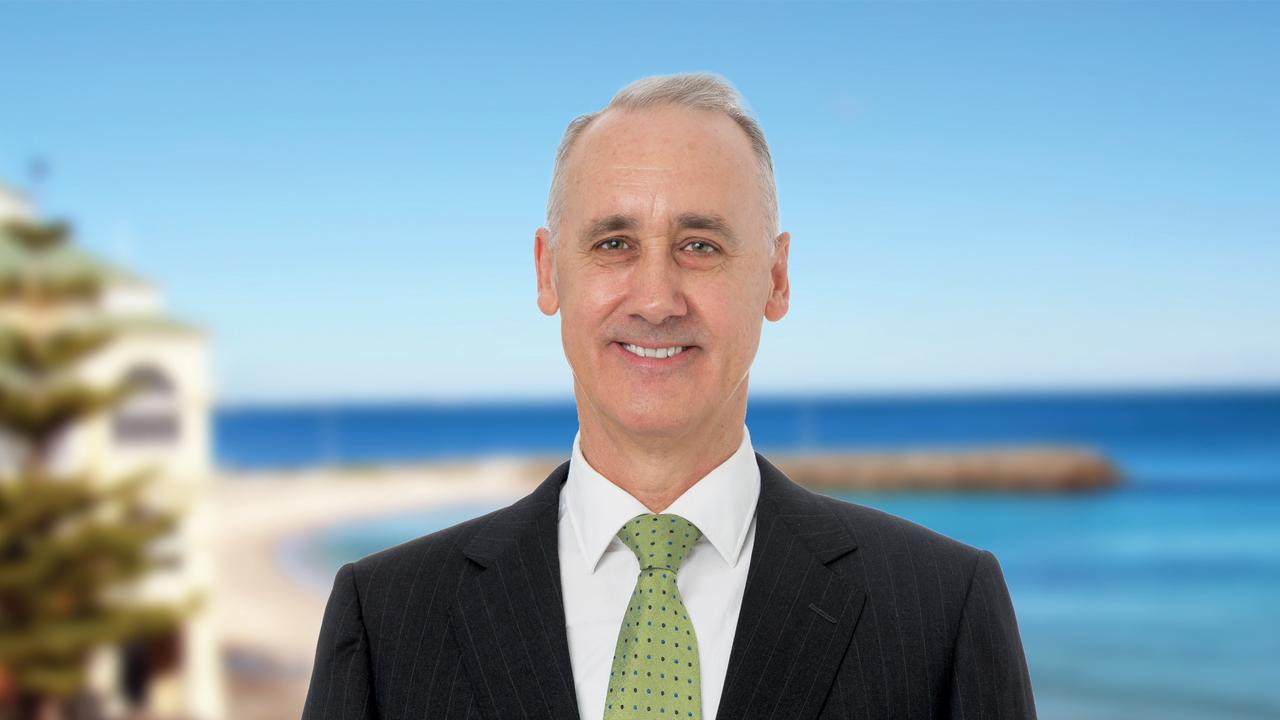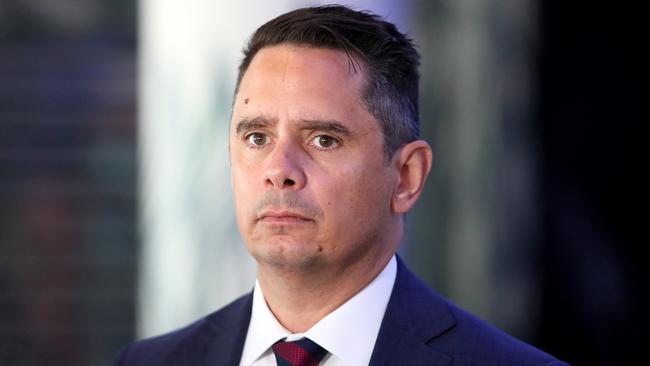WA election: iron ore slug puts Brendon Grylls in play
A plan by the WA Nationals leader to slap a $7.2bn tax on BHP and Rio has failed to generate voter support.

A controversial plan by West Australian Nationals leader Brendon Grylls to slap a $7.2 billion tax on BHP Billiton and Rio Tinto has failed to generate voter support, against an aggressive advertising campaign by the big miners in the lead-up to the March 11 election.
A special Newspoll survey, taken exclusively for The Australian, shows only 36 per cent of West Australians support the policy. Almost half of voters surveyed were opposed.
The result highlights a growing risk for Mr Grylls of losing his seat of Pilbara, which covers the heartland of Western Australia’s mining industry.
Shifting seats in 2013, Mr Grylls risked contesting Pilbara, vacated by the retirement of Labor veteran Tom Stephens, and was rewarded with an 18.7 per cent swing.
But the race is expected to be far tighter this year, with One Nation contesting Pilbara alongside Labor and Liberal candidates.
The Nationals leader, who is aiming to implement the tax if his party holds the balance of power after March 11, wants to increase a rental fee on BHP Billiton and Rio Tinto from 25c to $5 a tonne on iron ore produced in the Pilbara.
The move, which would raise about $7.2bn over four years, has been met by a major advertising campaign funded by the mining industry, which claims the impost would cost jobs and deter investment.
The plan is not supported by Premier Colin Barnett’s Liberal Party, which has governed in alliance with the Nationals since 2008.
The Newspoll survey conducted last week showed support for Mr Grylls’s plan was highest among Greens voters — 44 per cent in favour and 35 per cent against. Only 38 per cent of Liberal-Nationals voters were supporters. Support for the tax was split evenly between city and regional areas.
Mr Grylls maintains that an increase in the 1960s rental fee is long overdue and that the two big miners can afford to pay.
Critics say the increased government revenue from the plan would further cut Western Australia’s share of the GST and so benefit other states.
Mr Barnett rebuked the miners this week for their media campaign, prompting Labor to claim he would do a deal with the Nationals for some form of royalties hike if re-elected.
“I’m not very pleased with the way the mining industry has campaigned against Brendon,’’ Mr Barnett said. “I don’t know what they’re up to. They’re running a huge campaign.
“They’re entitled to do it. I’m just saying as the Premier of Western Australia, running a Liberal-National government, I’m not pleased with that.”
In Karratha, the Pilbara city hard-hit by the end of the resource sector’s construction phase, resident Carrie McDowell said she opposed “Brendon’s extra tax”.
Ms McDowell said she and her husband lost their full-time jobs in Karratha, 1500km north of Perth, but decided to stay because they loved the Pilbara lifestyle.
The city has a thriving fishing and boating scene and is three hours’ drive from the spectacular gorges of Karijini National Park.
Ms McDowell, an artist, is now working for a local Aboriginal corporation.
She said Karratha and its declining population — she estimated it had shrunk by 10,000 people — would not benefit from slugging Rio Tinto and BHP Billiton with the $5/tonne impost Mr Grylls was promoting.
“It will cost jobs up here,” Ms McDowell said. “Every time a job leaves town, it puts stress on businesses and has a knock-on effect that Brendon hasn’t thought through.
“I think he’s digging a grave for himself ... All I can see is bad things coming out of it.”
Javavan coffee proprietors Hilary and John O’Connell are divided on the issue.
Living in the Pilbara for 28 years, they have raised their children in Karratha, where two years ago Ms O’Connell lost her job of 25 years with gas producer Woodside, but she is still sympathetic to the major resources companies. “The companies pay enough as it is,” she said. “The town is already suffering, and the big companies support a lot of local communities, like housing for the doctors to live here and travel assistance schemes for the schoolkids.”
Mr O’Connell disagrees: “The companies have got billions of dollars, and local businesses in Karratha lost a lot because they had to buy houses for their employees in the boom and they’re now left with the houses and the banks want money off them.”
However, they both think Mr Grylls will hold Pilbara, “because everybody knows Brendon”.
* Ms McDowell is married to Peter McDowell, who is directing the election campaign of the Liberal party’s Karratha candidate. She did not disclose this at the time of the interview to The Australian.
Additional reporting: Victoria Laurie



To join the conversation, please log in. Don't have an account? Register
Join the conversation, you are commenting as Logout